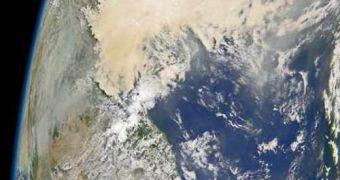Since the early 1990s, land- and mountain-based glaciers worldwide have been in a constant process of withdrawal, with devastating consequences to global fresh water supplies, which mostly depend on these sources. Asian glaciers, in particular, pose the highest threat because they fuel several large rivers, that, in turn, provide energy - both hydroelectrical and nuclear - and water to more than 2 billion people.
An analysis performed in 2006 reveals a painful fact - Tibetan glaciers have already reached critical levels. Lonnie Thompson from Ohio State University used a radioactive dating technique that looks for radioactive decay imprinted on the ice by human nuclear activities, such as the explosion of test nuclear bombs in the Soviet Union and the US during the Cold War. Usually, in most glaciers, the 195152 and 1962-63 horizons can be easily detected.
But measurements conducted by professor Lonnie Thompson's team revealed that the Tibetan ice already shows ice dating back to 1944, meaning that a huge portion of their surface simply melted over the past years because of greenhouse gases induced global warming. Human pollution is the main cause of this problem, and its effects are so wide-spread that authorities in all countries where rivers such as Indus and Brahmaputra cross are beginning to question the reliability of their water resources.
"At the highest elevations, we're seeing something like an average of 0.3°C warming per decade. The Intergovernmental Panel on Climate Change projects 3°C of warming by 2100. But that's at the surface; up at the elevations where these glaciers are, there could be almost twice as much, almost 6°C," warned Thompson, explaining that high altitude glaciers feel the effects of global warming more than those at sea level.
"I have not seen much as compelling as this to demonstrate how some glaciers are just being decapitated," added Shawn Marshall, an associate professor at the University of Calgary in the US.

 14 DAY TRIAL //
14 DAY TRIAL //